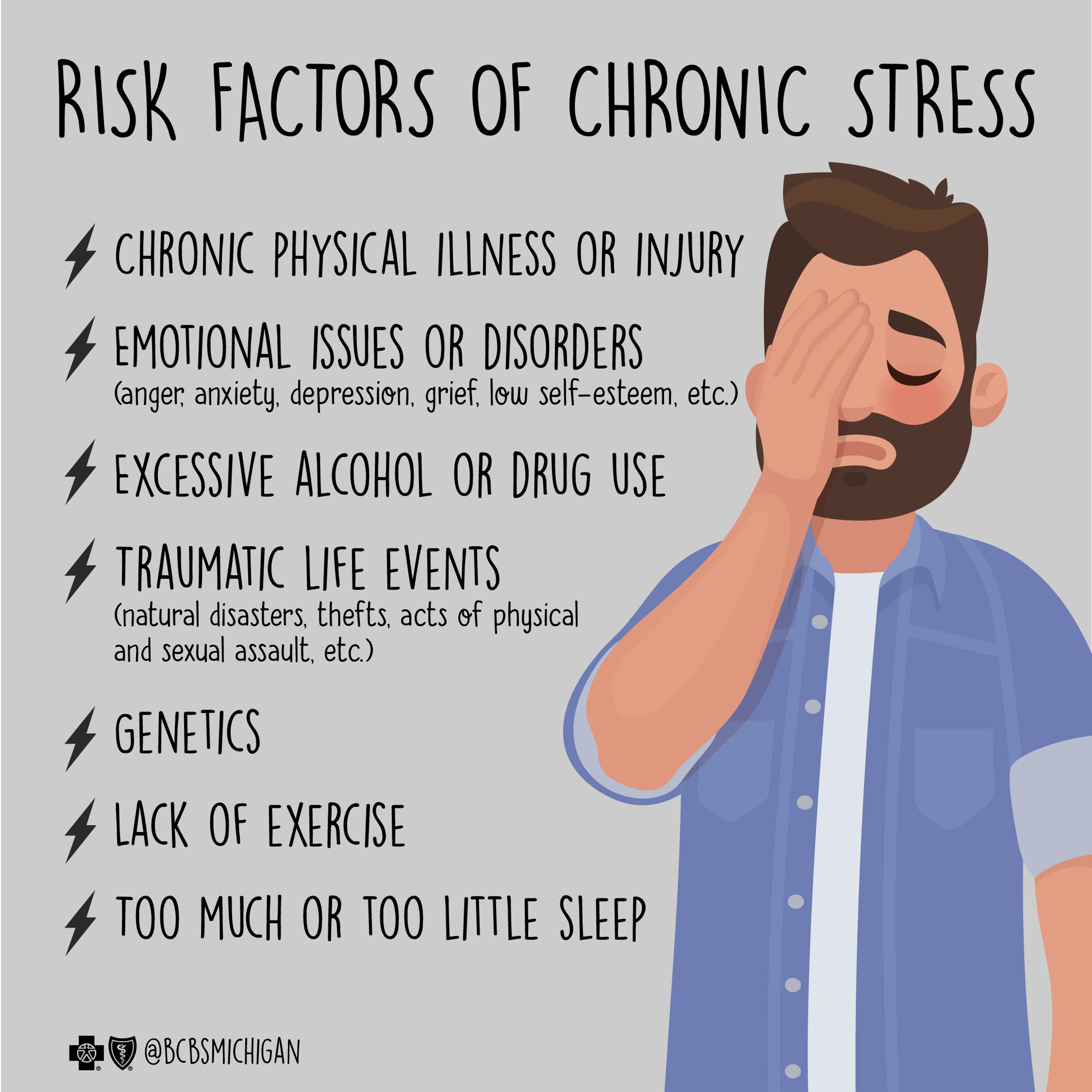Combatting a Hidden Health Crisis: Chronic Stress

Blues Perspectives
| 3 min read

While everyone hates stress, it does serve a specific and necessary purpose. When there’s a perceived threat, such as a terrifying animal, the body increases its levels of adrenaline and cortisol while restricting nonessential bodily functions.
This is all to prepare itself for “fight or flight”—the choice to either flee the scene or physically attack the danger. Once the threat passes, the system regulates itself and everything goes back to normal. Or at least, that’s how it’s supposed to work.
But these days, many people are a lot more likely to get stressed out about work deadlines, money issues and relationship problems than being attacked by a tiger. And those stressors aren’t one-time-only events; they can occur day after day. In such cases, the response system might not shut off and the body might enter a state of chronic stress.
It turns out that can contribute to some pretty serious long-term health issues, including heart disease, digestive issues, anxiety, depression, poor sleep, weight gain and more.
While the causes vary from person to person, chronic stress can result from heavy workloads, finances, family responsibilities, previous abuse or trauma, major life changes (moving to a new city, divorce, the death of a loved one), our perceived state of the future and negative news and current events.

Fortunately, there are several strategies to help people cope with chronic stress and reduce the impact it can have on your health:
- Meditation: By taking a few moments to shut out the world, breathe and be still, a state of deep relaxation for the mind and body takes place. A John Hopkins University study shows that meditation can help identify the kinds of thoughts that boost stress levels, so it’s easier to avoid reacting to them. There are several types of meditation to choose from – guided meditation, mantra meditation and mindfulness meditation. Try a few and see which one works best.
- Yoga: Practicing yoga combines the mental health benefits of meditation with the physical benefits of exercise. Physical activity actually reduces cortisol levels while boosting the production of mood-boosting endorphins. Yoga’s emphasis on breath and focus helps establish a sense of calm while poses improve the body’s circulation, strength, flexibility and balance. Over time, yoga has been shown to help manage chronic conditions—many of which are associated with chronic stress—like anxiety, heart disease and pain.
- Self-Care: Making time for self-care is a crucial part of managing stress. Establish boundaries between work and home life, eat a balanced, nutritious diet, exercise regularly and participate in hobbies. Establishing a sense of balance between the stressful parts of life that cause stress and those that bring joy and peace-of-mind can greatly minimize the harmful physical and mental effects of chronic stress.
- Seek Additional Support: If the previously mentioned practices don’t help reduce stress levels and there’s a continued feeling of depression or being overwhelmed, seek help from a licensed mental health professional such as a psychologist. Consulting a professional can help uncover the underlying factors contributing to symptoms, and help in the development of a customized treatment plan.
Blue Cross Blue Shield of Michigan and Blue Care Network members can visit bcbsm.com/mentalhealth for support, resources, helpful articles and much more.
Find more information on getting help when you need it, check out these other blogs:
- Integrating Behavioral Health with Primary Care
- Does My Insurance Cover Mental Health and Substance Abuse?
- A New Partner in Mental Health Treatment: Your Primary Care Doctor
Photo credit: Getty Images





